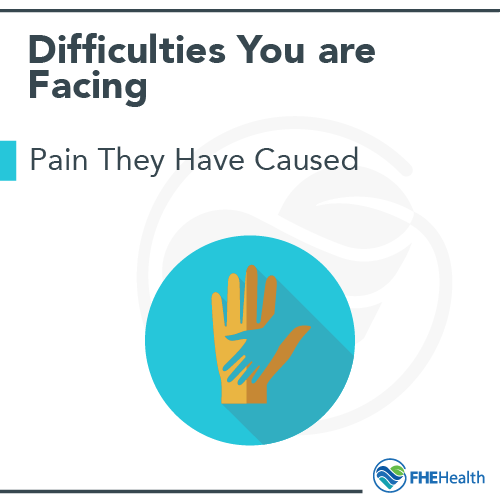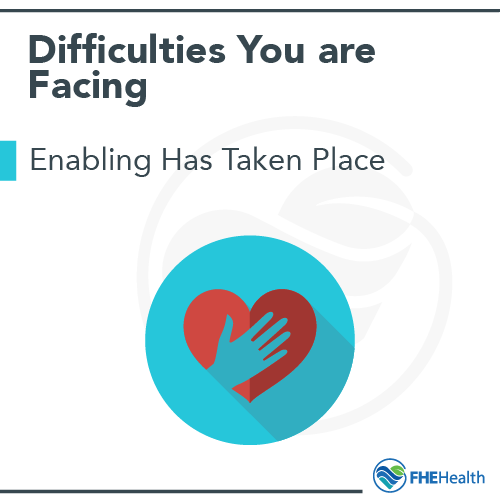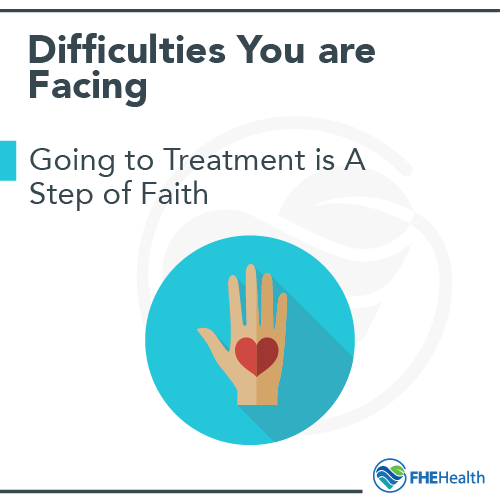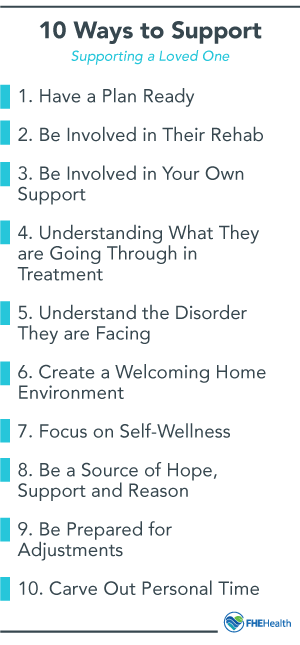
When a spouse goes to rehab for an addiction and/or mental health condition, everything changes at home. This is all so new, and the situation going forward is both anxiety-provoking and uncertain. What’s involved in supporting a loved one in rehab? How does one help and not hinder a spouse in early recovery? Will the marriage or partnership survive rehab? This article offers answers to these questions and others.
Having a Loved One in Rehab Is Difficult
Having a loved one in rehab is an extremely difficult situation, without a doubt. No matter how close the marital relationship, chances are that a good deal of pain and suffering have occurred in the lead-up to rehab, creating dysfunctional spousal and family dynamics. Moreover, despite repeated vows to change, addicts often find it hard to change. This can cause a spouse to wonder whether it’s even worth it to stay in the marriage while their spouse is in rehab.
 They’ve Caused a Lot of Pain.
They’ve Caused a Lot of Pain.
Coming home night after night drunk or high probably created endless arguments and a great deal of pain. This isn’t normal, but it’s a fact that the non-addicted spouse often has adjusted to. The accumulated pain can lead to resentment, bitterness, and a desire to escape the marriage. It’s understandable to want to be rid of the constant negativity and increasingly serious consequences from drinking and drug use, an untreated mental health disorder, or a combination of substance abuse and mental health issues. Something’s got to give. By the time someone goes to rehab, they’ve very likely emotionally drained their loved ones, leading to the serious question, “Should you stay with someone in rehab?” Physical and psychological abuse, stealing, engaging in extramarital affairs, and other painful consequences of a spouse’s addiction only exacerbate the pain.
 Too Many Stages of Enabling the Non-Addicted Spouse Have Already Taken Place.
Too Many Stages of Enabling the Non-Addicted Spouse Have Already Taken Place.
Making excuses for the spouse now going to rehab, always bailing them out, seeking to minimize consequences, avoiding friends and other family members so as to skirt the difficult topic of what’s going on with this individual, all add up to a progressive series of stages of enabling the addict. Instead of doing any good, enabling an addict only reinforces the behavior. Excusing alcoholism or drug addiction, looking the other way, or accepting responsibility for that person’s actions doesn’t do anything to overcome the addiction. Self-acceptance of the addiction and a commitment to getting sober through rehab are the only ways to recovery. Enabling will only prolong the addiction: When enabled, the one drinking and using drugs will rationalize that they can continue to engage in these behaviors no matter what happens because they’ll always be bailed out.
 Going to Treatment Is a Step of Faith and Can Be Scary.
Going to Treatment Is a Step of Faith and Can Be Scary.
When the addicted spouse finally makes the decision to seek help, it’s a cause for reluctant joy. Granted, this isn’t an easy decision for anyone to make, as going to rehab is both uncertain and scary for the one seeking help, as well as the spouse who wants to support a loved one in rehab. There are, after all, no guarantees of sobriety post-treatment. Indeed, relapse is a very real risk during the first 90 days following rehab.
Caring is Important, But What Kind of Help is Needed?
Addiction experts are unanimous in recommending a strong support system, including the primary support the recovering individual has from loved ones and family members. Supporting a loved one in rehab includes many things, although love and caring are at the top of the list. Yet, more than caring is needed in the rehab and recovery journey. Both the recovering individual and his or her spouse and family are intricately involved in recovery, as addiction affects the entire family.
10 Ways to Be a Support
As important as rehab is, for the outcome to be most likely to succeed, the individual in rehab needs multiple layers of support. Close family members, such as a spouse or partner, offer one especially critical layer of support. The following tips for being supportive entail finding practical ways to reinforce a loved one’s recovery, not enable them:
 1. Have a Plan Ready.
1. Have a Plan Ready.
Since the risks of relapse are real, it’s important to draw a clearly defined set of red lines (boundaries) to ensure there won’t be any enabling of destructive behaviors on the part of the recovering spouse, should they start again. Know firmly what will not be tolerated, such as squandering mortgage money on drugs or gambling, bailing the person out of jail after a DUI or arrest, or frequent hospitalizations due to alcohol-related injuries. Physical abuse or psychological distress should never be allowed to continue. A plan is definitely required to make sure the non-addicted spouse has a ready means of handling the situation, even leaving the home environment, should it become violent or unstable.
2. Be Involved in Their Rehab.
Depending on the spouse’s treatment during rehab and the type of addiction or mental health disorder being treated, there is likely some version of family education and therapy available for the non-addicted spouse. Addiction changes the brain, resulting in personality changes, sometimes cognitive impairment and other issues. Knowing what to expect and how you can help and interact during family or couples therapy can smooth the spouse’s transition from rehab to recovery, and give the non-addicted spouse the tools and strategies to offer more support to the spouse in rehab.
3. Be Involved in Your Own Support.
There are many Al-Anon style groups that provide support for family members of users. This type of support is enormously helpful and can mean the difference between endlessly struggling and burying resentment and finding the strength and resources so vital to ensure a safe and confident foundation in being able to be there for the spouse in rehab. For the spouse of an alcoholic, Al-Anon offers the emotional support and camaraderie of being with spouses of loved ones in rehab. Talking through difficult issues and hearing the success stories and suggestions from others in similar situations makes this time feel less lonely and impossible. There’s strength in numbers as well as a sense of solidarity with others who are also in the trenches of addiction and recovery.
4. Understand What They are Going Through in Treatment.
The best way to have a better appreciation for what they are working through is to gain a thorough understanding of their spouse’s treatment plan. Find out what it entails, down to the specifics of medication dosage, counseling sessions, types of behavioral therapies, holistic and complementary therapies available, recreational offerings, and what to expect in what timeframe. Knowing when and how the treatment plan is monitored and adjusted to account for difficulties or progress is another key aspect of understanding what the spouse is going through in rehab and supporting them.
5. Understand the Disorder They are Facing.
While there are many similarities and overlaps in terms of symptoms of withdrawal and the psychological, physiological, emotional and cognitive changes caused by alcohol and drugs, there are also distinct differences. Often, those entering rehab have a “dual diagnosis” that requires treatment: usually, substance abuse that co-occurs with a mental health disorder. Some individuals coming to rehab have polydrug addiction, maybe even a mental health disorder that’s been exacerbated by the drug use or came about as part of the addiction. A study published in Neurobiology of Stress found that consistently high levels of drug use alter reward and stress responses, and such alterations, according to recent findings, are associated to a significant degree with drug intoxication, tolerance, withdrawal and a likelihood of current drug use and future relapse. Learn as much as possible about the specific disorder the spouse in rehab has been diagnosed with. The more knowledge obtained, the better prepared the non-addicted spouse will be in being supportive of the recovering individual.
6. Create a Welcoming Home Environment
Returning home from rehab is a celebratory event. Make sure the home environment is both welcoming and functional to ensure the best possible re-entry to family life. Eliminate clutter. Perhaps paint a room or two to brighten the surroundings. Be sure there are no remaining alcohol or drug supplies or paraphernalia in the area. These could serve as triggers to use and quickly prompt an unwelcome relapse.
7. Focus on Self-Wellness
While the spouse has been away in rehab, the spouse at home must maintain a focus on self-wellness. That means that in addition to getting restful sleep, eating nutritious meals, engaging in vigorous physical exercise, and staying hydrated—all, by the way, important aspects of the recovering spouse’s recovery plan—it’s also important to let go of anger and hostility. Identifying and adopting effective ways to reduce stress will make it easier to support the loved one in rehab and throughout the healing journey. It’s also important not to take on all the responsibility of the spouse in rehab. That will lead to being overwhelmed and is counter-productive in the long-term. It’s also another form of enabling. By the same token, if the spouse is undergoing treatment for a mental health issue, don’t take on undue responsibility for him or her. It won’t help either party.
8. Be a Source of Hope, Support and Reason
Likely, the spouse coming home after rehab feels some reticence and worries how the interpersonal dynamic will be altered now that they’re sober. Be intentional about showing love and affection and consistently expressing love, despite the challenges that may be experienced during the healing journey.
9. Be Prepared for Adjustments
Support group meetings and a concentration on sobriety have to come first for the recovering spouse. This means the non-addicted spouse has to recognize, accept and be prepared to handle these changes and make adjustments to accommodate them. This is an example of being supportive of the spouse’s recovery and doing the best to help facilitate and continue to encourage his or her healing journey. Don’t take it personally if a spouse has difficulty expressing emotions or wants to be alone at times. The recovery process is not a straight line from point A to point B. There are, in fact, many twists and turns, and each person proceeds differently, in their own way and at their own pace. Be understanding and willing to accept how life has changed.
10. Carve Out Personal Time
In order to fully support a loved one in rehab and ensuing recovery, carve out personal time to do things you enjoy. This helps to maintain a healthy outlook, retain optimism, and keep life well-rounded and filled with satisfying activities and friends. This way, there’s always something to look forward to, and there’s less likelihood that the non-addicted spouse will suffocate the recovering spouse in the process. When the loved one is attending meetings, for example, being able to do the things that bring you pleasure will soften that absence. In this way, both of you will be doing things that are crucial to staying healthy.






